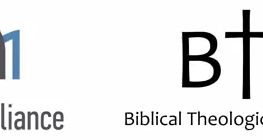When we send our children to college, are we paying for them to be educated – to learn how to reason through difficult topics with all the best evidence and perspectives before them – or are we paying for someone to tell them what to think?
On March 10, 2014, college President Thomas White addressed the Cedarville University community with a sermon (“chapel message”) on 1 Corinthians 11:2-16 whereby he laid out a classic complementarian position on gender roles according to his understanding of Scripture.
I have never met President White but he strikes me as a warm and friendly person. He clearly loves the Cedarville community and holds his students close to his heart. Perhaps most clearly of all, he is a gifted preacher. But is he a model educator? Because he has a master’s and doctoral degree from a seminary, it should be clear enough his chapel message was intended to be a form of Christian teaching. And, no doubt, students will be formed in their understanding about how education works from someone who presents himself as an exemplary teacher. So, I will repeat again: is President White a model educator?
As I finished listening to his sermon, I was discouraged and disappointed that President White did a disservice to his students in one key area: he tried to win his students over with a complementarian position by failing to present the full picture of (a) the exegetical/logical complexities of 1 Corinthians 11:2-16 and (b) the best arguments for an egalitarian position from the most exegetically-responsible and respected proponents.
A few years ago I visited a Christian college that had this attractive motto: “education, not indoctrination.” Those who indoctrinate tell people what to think (sometimes explicitly, but more often implicitly). Those who educate help students to reason through a tough issue by presenting the best arguments from both sides even if one perspective is preferred by the instructor or institution. In this case, I was not shocked to find a preacher preach on 1 Corinthians 11:2-16; I was shocked to see an educator fail to exemplify the foundational principle of teaching: turn all the lights on and pass out all of the equipment. White had the lights on only where he was standing (i.e., best arguments for a complementarian position) and he provided no tools (hermeneutically) for students except “let Scripture interpret Scripture” (which arguably reasonable egalitarians do as well) and “read in context” (which the best egalitarians also do).
So far, I have criticized President White generally, but not specifically. I would now like to identify three concerns I have with his sermon on 1 Cor 11:2-16 and why I would consider this message persuasive preaching, but flawed pedagogy.
-
“I’m just going to preach to you what the text says.” President White made this appeal – a remark that encourages listeners to hear a plain reading of the text. Admittedly, because the Pauline text repeats the word “head,” it sounds convincing to say it teaches “headship.” However, what if I followed his sermon with my own sermon on the story of the judge Deborah and said, “I am just going to preach to you what the text says” (Judges 4-5). In the text it is very clear she was a leader with authority over men. The approach President White took (“get mad at Paul, not me”) does not demonstrate at all that the interpretation of the text is fraught with difficulties. Early on in his message, President White made frequent mention of how the text of 1 Cor 11:2-16 is full of landmines (controversial issues); but as you progress through his sermon, it becomes clearer that he believes that it only seems complex, but a complementarian position should easily win the day if only Christians who trusted Scripture read it plainly (for “what the text says”). The sermon began with an “education” approach and then seemed to me to devolve into an “indoctrination” approach. Put another way, he began his sermon with the light fully up in the chapel, and throughout the hour the lights slowly faded to a spotlight on his position.
-
“There are four teams, and only one is biblical.” President White presents four views on gender and Scripture: radical feminism, egalitarianism, complementarianism, and radical patriarchy. He throws the two radical positions out for obvious reasons. That is fine with me. But here’s the problem: instead of articulating a gracious (i.e., fair) perspective on egalitarianism, he makes a quick statement that some egalitarians let Galatians 3:28 (“no male and female”) rule the day. He dismisses this as proof-texting. Certainly some egalitarian interpreters are more persuasive than others, but a Gal 3:28-proof-text approach is hardly the best argument from the egalitarian camp. Surely the 500+ page evangelical-egalitarian tome Discovering Biblical Equality (IVP, 2005) is not an extended proof-text of Galatians 3:28, is it? (NB: It is not.)
So here is my concern. Rhetorically, President White stacked the deck in his favor. If his students have not read up on evangelical egalitarianism (some have, but most probably haven’t), they might not know that some of the best evangelical biblical interpreters of this generation and the last read 1 Corinthians 11:2-16 and other relevant texts in support of egalitarianism. I wondered throughout President White’s sermon what would happen if Linda Belleville, Gordon Fee, Craig Keener, Scot McKnight, I. Howard Marshall, Walter Kaiser, or (my favorite NT interpreter) the late F.F. Bruce were sitting in the front row. Or what if Cedarville students, earlier that week, had been introduced to the book Why I Changed My Mind About Women in Leadership: Compelling Stories from Prominent Evangelicals (with contributors telling their stories about changing to egalitarianism, people like Stuart and Jill Briscoe, Tony Campolo, Bill and Lynne Hybels, John and Nancy Ortberg, and Cornelius Plantinga – hardly leaders wishy-washy on the their understanding of the authority of Scripture). Would President White have adjusted his rhetoric if students knew more of the reality of evangelical egalitarianism? Honestly, I think he would.
-
“1 Cor 11:2-16 teaches headship and gender roles based on creation.” President White explains that this text is not important when it comes to headcoverings (a “cultural phenomenon”). Rather, it teaches, as the enduring theological message, “headship” and “gender roles.” And it does this based on creation.
I think White oversimplified or misrepresented all of these. Firstly, it may sound natural that because the word “head” appears so often here, it must refer to “headship;” only a close look at 1 Cor 11:3 will demonstrate the challenge involved in sustaining this position. For example, it might make sense to say that the head of woman is man, but then what does it mean that Christ is the “head” of every man? If this is a pecking order of “headship,” then Christ is not really the direct “head” of any Christian women. That cannot be what President White is implying, but it seems to me to be a naturally implication of his approach. Secondly, is it true that this passage aims to teach about gender roles? There is nothing in this text that establishes this as the case – it is more ostensibly about respect (notice how many times “glory” appears). Women should properly respect men, and men should respect women. In order to boil it down to roles, President White has to focus in on the creational element (1 Cor 11:9). Admittedly, this does seem like an important argument for Paul, namely that woman was created “on account of” man, and not vice versa. But does that mean she was created to submit to his headship authority? Given that 1 Cor 11:2-16 is about respect and not roles, the Pauline argument pertaining to the priority of Adam (in creation) also seems to be about respect (and not roles). After all, the main issue is praying and prophesying in public services, and on this matter women are not barred (which White readily admits). Again, my wider concern with President White’s message is that he failed to make clear the many challenges involved in engaging in this debate.
In the end, I concur that a soft-complementarian approach can be defended biblically as well as an exegetically-sound egalitarian approach. So, I do not question President White’s evangelicalism. My major concern is not with President White as a Christian. My concern is with President White as a model educator. President White – don’t shy away from introducing your students to the whole scope of the debate. In the course of half an hour or so, he mentioned Wayne Grudem’s resources a number of times. Fine. Why not Fee? Keener? McKnight? France? Payne? The worst thing that could happen is that students struggle through the best arguments of both sides, and come out with reasoned conviction. Ultimately, if done within evangelicalism, isn’t that all we want our students to pursue in college – the truth with all the evidence and a panoramic view of the debate before them?
I can only guess at why President White did not present a fairer perspective on the debate. But I believe it comes down to control. Because Cedarville wants to establish certain gender-role ideas across the board of student life, they must present this as the only option for the serious Christian. Unfortunately, this is not education, and it is not worth the money students are paying for it. Or, at the very least, students need to know that they are paying for narrow doctrine, not pedagogical excellence.
I am confident that President White won a battle on March 10, 2014. I am sure that many complementarians walked away secure in their position. I think some egalitarians questioned their views. Surely undecided students became warm to White’s message. But at what cost did he win this battle? Can he celebrate a doctrinal victory at the price of the loss of the war of teaching students, not just what to think, but how to think with all the lights on?
Finally, I would like to do what President White did not do: offer reading suggestions for the best arguments on both sides of the debate.
Audio
Download these sessions from the Missio Alliance National Gathering:
Gender & Leadership in Missional Perspective with Cherith Fee-Nordling & Scot McKnight
Gender & Leadership in God’s New Creation with Cherith Fee-Nordling & Fred Harrell
General
Beck, J.R. and C. Blomberg, ed. Two Views on Women in Ministry. Zondervan, 2005.
Complementarian
Doriani, D. Women and Ministry: What the Bible Teaches. Crossway, 2003.
Grudem, W. Evangelical Feminism and Biblical Truth: An Analysis of More than 100 Disputed Questions. Crossway, 2012.
Piper, J. and W. Grudem, ed. Recovering Biblical Manhood and Womanhood. Crossway, 2006.
Egalitarian
Belleville, L. Women Leaders and the Church: Three Crucial Questions. Baker, 2000.
Keener, C.S. Paul, Women, and Wives. Baker, 1992.
Pierce, R.W. and R.M. Groothius, ed. Discovering Biblical Equality. IVP, 2005.












Missio Alliance Comment Policy
The Missio Alliance Writing Collectives exist as a ministry of writing to resource theological practitioners for mission. From our Leading Voices to our regular Writing Team and those invited to publish with us as Community Voices, we are creating a space for thoughtful engagement of critical issues and questions facing the North American Church in God’s mission. This sort of thoughtful engagement is something that we seek to engender not only in our publishing, but in conversations that unfold as a result in the comment section of our articles.
Unfortunately, because of the relational distance introduced by online communication, “thoughtful engagement” and “comment sections” seldom go hand in hand. At the same time, censorship of comments by those who disagree with points made by authors, whose anger or limited perspective taints their words, or who simply feel the need to express their own opinion on a topic without any meaningful engagement with the article or comment in question can mask an important window into the true state of Christian discourse. As such, Missio Alliance sets forth the following suggestions for those who wish to engage in conversation around our writing:
1. Seek to understand the author’s intent.
If you disagree with something the an author said, consider framing your response as, “I hear you as saying _________. Am I understanding you correctly? If so, here’s why I disagree. _____________.
2. Seek to make your own voice heard.
We deeply desire and value the voice and perspective of our readers. However you may react to an article we publish or a fellow commenter, we encourage you to set forth that reaction is the most constructive way possible. Use your voice and perspective to move conversation forward rather than shut it down.
3. Share your story.
One of our favorite tenants is that “an enemy is someone whose story we haven’t heard.” Very often disagreements and rants are the result of people talking past rather than to one another. Everyone’s perspective is intimately bound up with their own stories – their contexts and experiences. We encourage you to couch your comments in whatever aspect of your own story might help others understand where you are coming from.
In view of those suggestions for shaping conversation on our site and in an effort to curate a hospitable space of open conversation, Missio Alliance may delete comments and/or ban users who show no regard for constructive engagement, especially those whose comments are easily construed as trolling, threatening, or abusive.